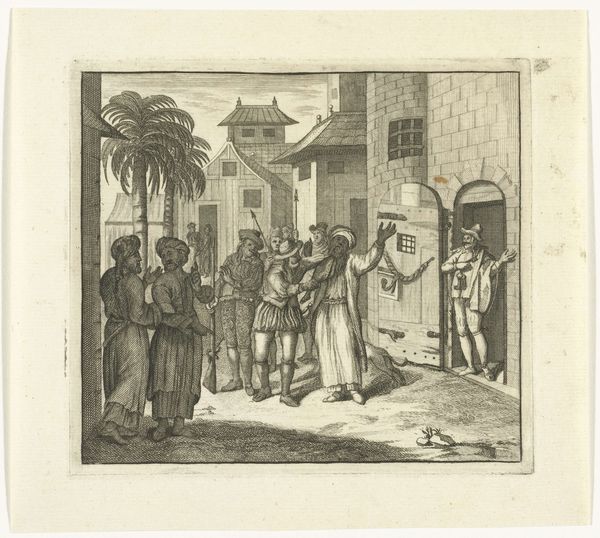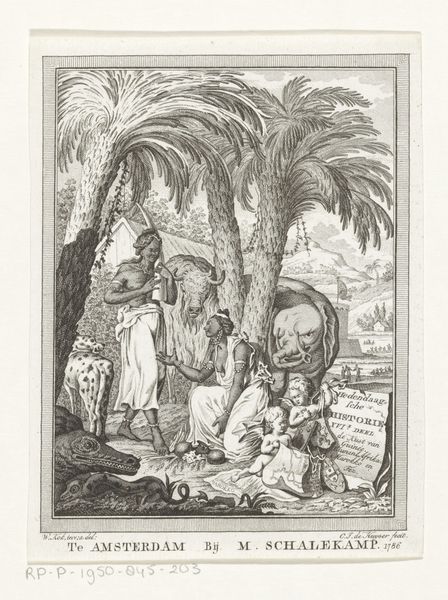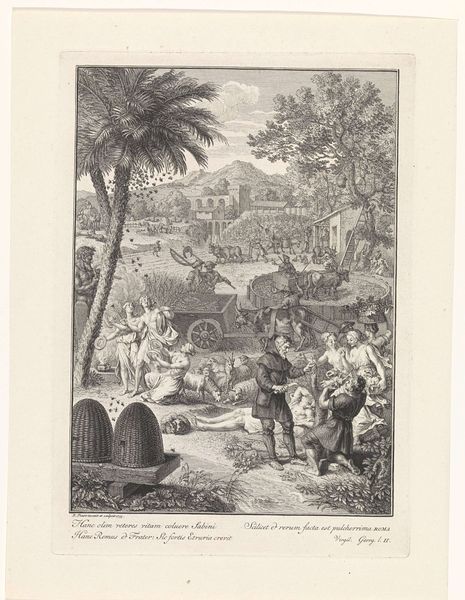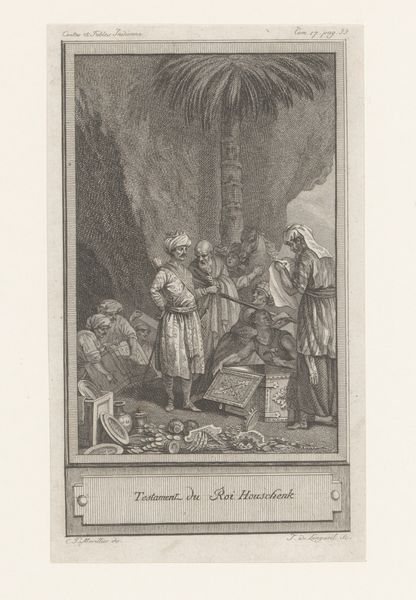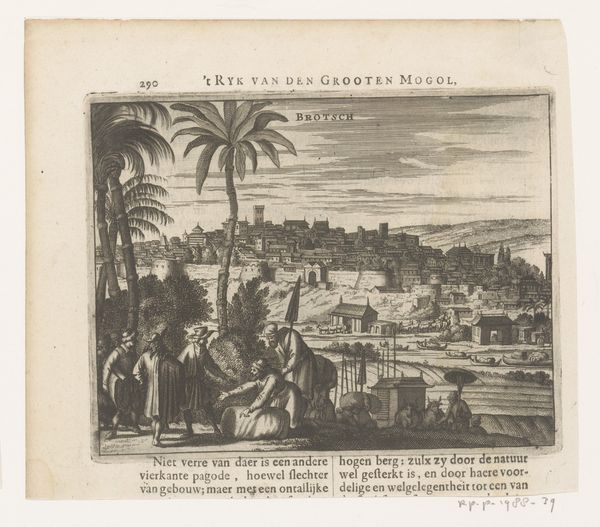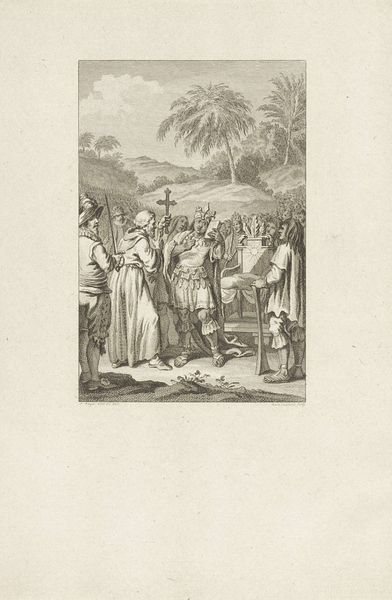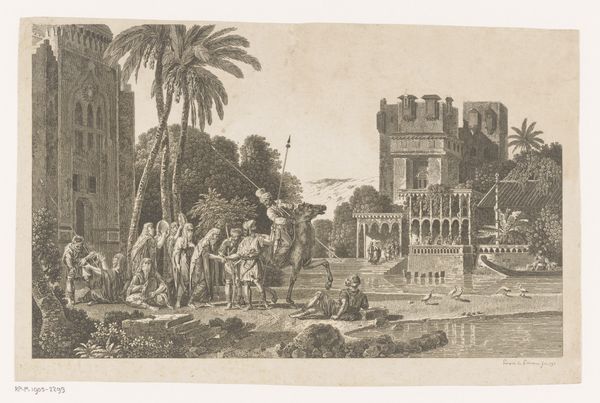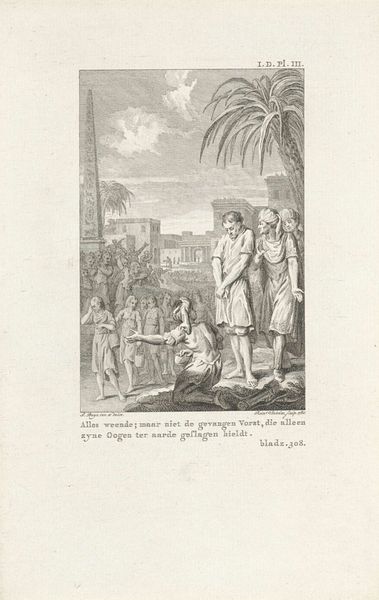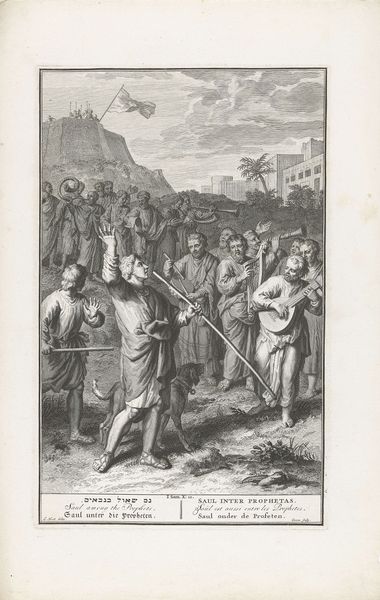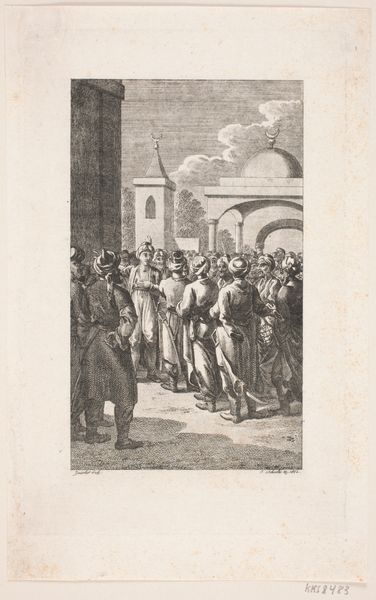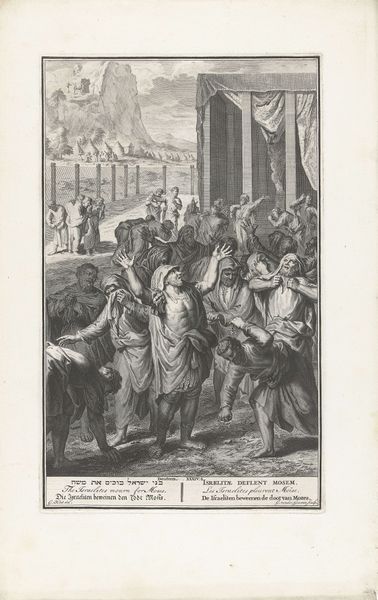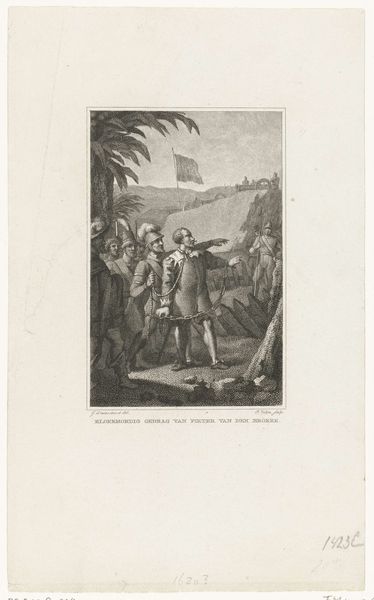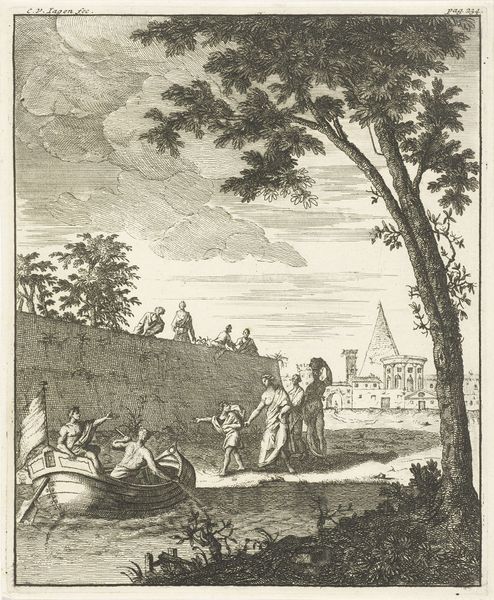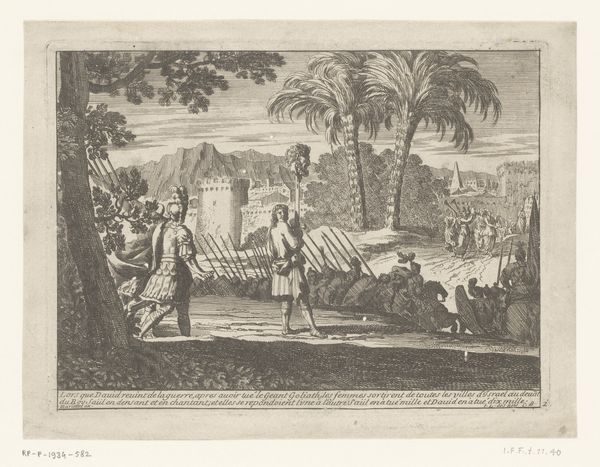
print, engraving
#
allegory
#
narrative-art
#
neoclassicism
# print
#
old engraving style
#
traditional media
#
figuration
#
old-timey
#
orientalism
#
line
#
history-painting
#
engraving
Dimensions: height 165 mm, width 123 mm
Copyright: Rijks Museum: Open Domain
Editor: So, here we have Simon Fokke’s "Allegorie op Afrika," an engraving from 1784. It seems to be depicting a procession of people. I am initially struck by the kind of calm yet formal feeling. What do you see in this piece? Curator: I see a powerful visual statement embedded in the complex historical narratives of colonialism and representation. This isn't just an innocent depiction of Africa; it's an allegory produced within a very specific European worldview. Editor: Can you elaborate? I’m not quite following. Curator: Certainly. Notice the clear division of figures and space: the book in the foreground, seemingly titled "History," anchors the European presence. Then, observe the people being "civilized". How does this compare to other "Allegories of Africa" from this period? Consider who had the power to create and disseminate these images, and what purposes they served. Editor: I guess I see that the African continent, or the people in the continent, were framed through a colonial gaze. There is a level of objectification, the land being possessed by these colonizers. Curator: Precisely. The composition, the poses, the contrast between the figures holding the cross and the lion standing at the top of the hill…it all reinforces a hierarchical structure, one that justifies European intervention. How does recognizing this influence your understanding of history paintings from this time? Editor: It's unsettling. I assumed that artwork could accurately tell us the reality of events in the past. It also forces me to question my understanding of how history is made, especially when its portrayal is used to give legitimacy to colonial violence. I learned a lot. Curator: Indeed. The more we acknowledge the contextual frameworks of art, the richer our critical view on history gets.
Comments
No comments
Be the first to comment and join the conversation on the ultimate creative platform.
